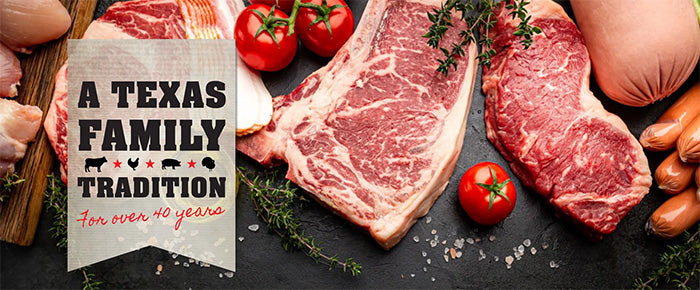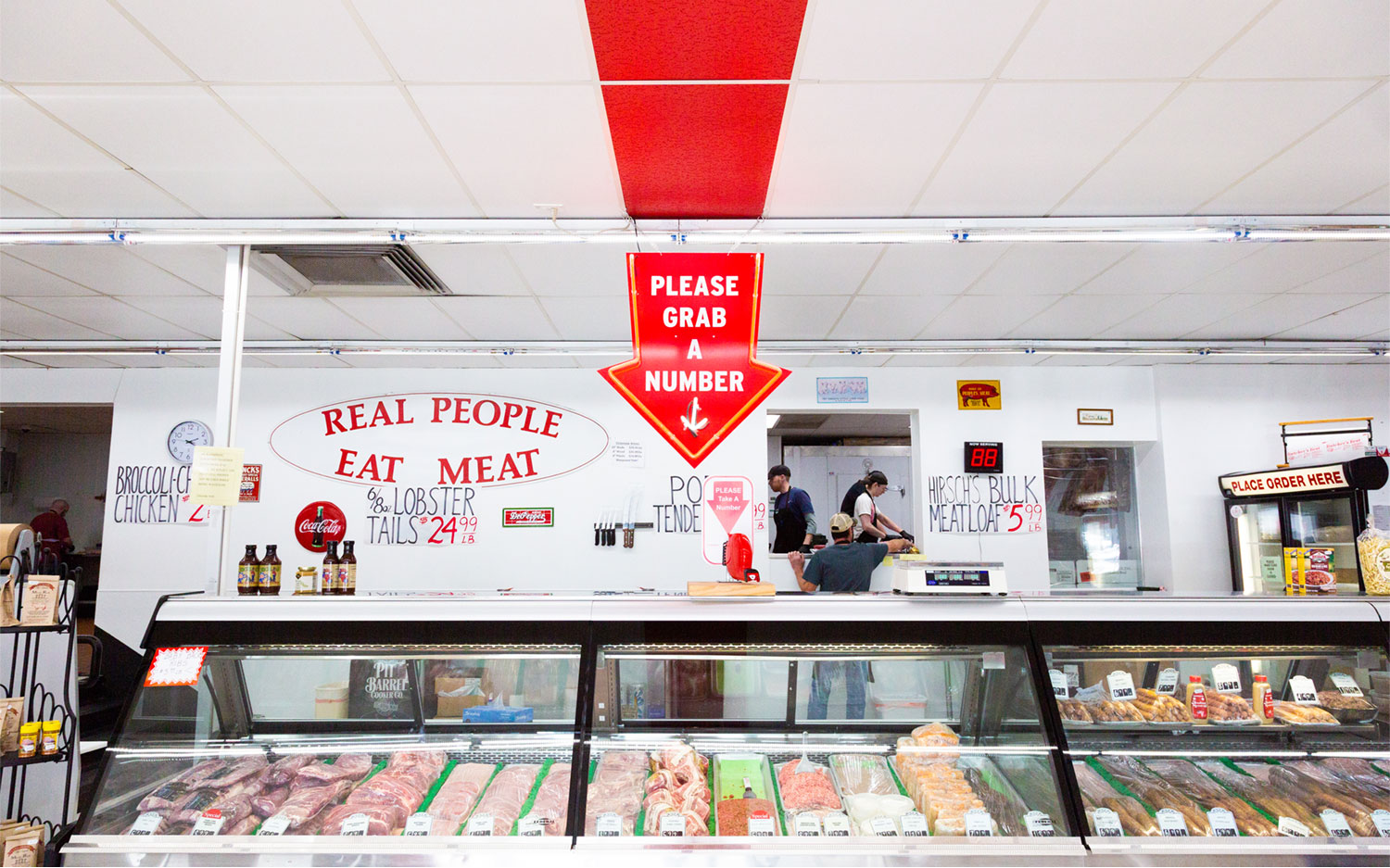Looking for Fresh Meats? Visit Bagley Meat Market Edwardsville IL for the Best Selection
Looking for Fresh Meats? Visit Bagley Meat Market Edwardsville IL for the Best Selection
Blog Article
Why Purchasing at a Local Meat Market Guarantees Fresh, High-Quality Cuts
Shopping at a regional meat market provides distinctive advantages that often go unnoticed by customers accustomed to larger retail chains. The ramifications of choosing neighborhood prolong beyond instant advantages, prompting a better exam of what this selection truly implies for both customers and the neighborhood economic situation.
Advantages of Local Sourcing
In the world of food purchase, the advantages of neighborhood sourcing attract attention plainly. By acquiring meat from neighborhood markets, customers obtain direct accessibility to items that are typically fresher and more flavorful than those found in bigger, business supermarkets. Local sourcing decreases the time and distance food travels from ranch to table, which not only enhances preference however additionally protects dietary value.

Moreover, local sourcing typically offers openness relating to the beginnings of the meat. Customers can ask about the farming practices used, pet welfare requirements, and whether the meat is grass-fed or natural. This details empowers shoppers to make informed choices straightened with their values.
Quality Assurance Criteria
Regional meat markets often adhere to strenuous high quality control standards that make sure the items provided satisfy high safety and security and freshness benchmarks. These criteria typically incorporate different stages of the meat production procedure, from sourcing to dealing with and storage space.
First, regional markets usually establish rigid supplier standards, making sure that only reliable farms and producers are made use of - bagley meat market edwardsville il. This lowers the probability of contamination and promotes higher animal welfare standards. Additionally, numerous regional meat markets execute routine inspections to verify that the meat is refined under hygienic problems, further decreasing health and wellness dangers
Temperature control is another important aspect of quality control. Regional meat markets regularly keep an eye on refrigeration systems to preserve ideal storage temperature levels, ensuring that meat continues to be safe and fresh for consumption. The application of traceability systems allows markets to track the origin of their items, offering openness and liability.
Last but not least, staff at regional meat markets are commonly trained to identify indicators of perishing and understand appropriate handling methods. This dedication to high quality control not only boosts the total standard of the meat however likewise fosters customer trust, making neighborhood meat markets a dependable resource for top quality cuts.
Supporting Local Farmers
Sustaining neighborhood farmers is vital for cultivating a sustainable food system and improving area durability. They straight contribute to the source of incomes of farmers in their area when customers choose to go shopping at local meat markets. This not only supports the neighborhood economic situation however likewise strengthens the agricultural field, making certain that it stays vivid and feasible.


Additionally, supporting neighborhood farmers fosters a sense of community and connection between customers and producers. It urges openness in food sourcing and instills trust, as clients can establish partnerships with the individuals who increase their food. This direct connection ultimately results in a more engaged and informed public, which is crucial for advocating for lasting agricultural techniques in the future.
Lasting Practices
Sustainable practices in meat markets play an important duty in promoting ecological stewardship and ensuring pet well-being. Regional meat markets often focus on sourcing their items from ranches that apply ethical and sustainable farming approaches. These methods include rotational grazing, which helps preserve soil health and minimizes carbon exhausts, together with lessening the use of anti-biotics and hormonal agents in animals.
In addition, local meat markets typically highlight openness in their supply chains. Clients are offered with information relating to the beginning of their meat, permitting them to make educated selections that line up with their values. By sustaining regional farmers that practice lasting methods, customers add to the preservation of biodiversity and the decrease of transport exhausts related to long-distance meat circulation.
In addition, several regional meat markets take part in waste decrease methods, such as utilizing every component of the pet and advertising off-cuts that may or else go unsold. By promoting a website link more lasting method to meat usage, these markets not only give top quality products but also add positively to the atmosphere and animal welfare. Basically, purchasing at a neighborhood meat market straightens customers with a wider motion in the direction of moral and responsible food sourcing.
Personalized Customer Care
Purchasing at a meat market typically incorporates more than simply the items supplied; it is additionally regarding the experience and the relationships constructed between customers and staff. Personalized consumer service is a characteristic of local meat markets, establishing them in addition to bigger grocery store chains. Knowledgeable team take the time to understand specific customer choices, making sure that each browse through is customized to certain needs.
Consumers profit from experienced advice on cuts, food preparation approaches, and preparation ideas, cultivating a feeling of depend on and commitment. This tailored interaction permits customers to ask questions and seek suggestions, leading to educated buying decisions. Team member usually bear in mind routine clients and their preferences, producing a welcoming ambience that cultivates neighborhood connections.
Moreover, tailored service reaches unique demands, such as personalized cuts or details preparation approaches, which bigger retailers may not accommodate. This level of focus enhances the dedication of regional meat markets to top quality and client contentment.
Fundamentally, customized customer care not just boosts the purchasing experience however additionally makes certain that customers entrust the most effective products matched to their cooking needs, making every go to a fulfilling one.
Final Thought
Supporting regional farmers cultivates neighborhood connections and reinforces the regional economic climate, while lasting methods contribute to environmental stewardship. Furthermore, individualized client service improves the buying experience, making regional meat markets a preferred option for customers seeking both quality and ethical considerations in their food sourcing.
The effects of picking local extend beyond prompt advantages, motivating a better evaluation of what this option genuinely official statement implies for both customers and the regional economic climate.
Sustaining regional meat markets additionally adds to the regional economic climate. Neighborhood meat markets frequently check refrigeration systems to maintain optimum storage temperatures, making certain that meat continues to be safe and fresh for consumption.Local farmers are often more attuned to the details needs of their areas, elevating and growing crops livestock that straighten with neighborhood preferences and preferences. Supporting neighborhood farmers cultivates area connections and enhances the local economy, while sustainable practices add to ecological stewardship.
Report this page